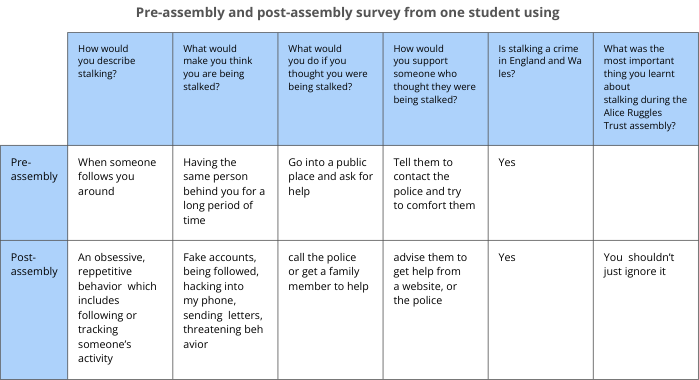This National Stalking Awareness Week, agencies are being asked to ‘Join Forces Against Stalking’ and work together effectively to support victims of stalking.
The Alice Ruggles Trust is partnering with Durham Constabulary and the Office of Durham Police and Crime Commissioner to deliver assemblies across schools in County Durham and Darlington to foster generations of young people who understand stalking, the potential risks of stalking, and what they can do about it.
These 30-minute assemblies, which are being delivered free of charge by PCSOs and volunteers, help students begin to recognise what stalking is and understand that it should be taken seriously; know where to go for support or information if they think they are being stalked; and know how to help a friend or family member who they think may be at risk.
The project launched in January 2024 and is being comprehensively evaluated by a team from Goldsmiths, University of London, the University of Kent and the University of Derby.
With support from agencies across the area, including Durham Victim Care & Advice Service and Harbour Support Services, the project aims to ensure that young people within County Durham and Darlington are equipped with basic knowledge around stalking and know where to turn to for help.
Speaking about the project Prof. Clive Ruggles, co-founder and Chair of the Alice Ruggles Trust, said:
“Changing the mindset of today’s young people is vital if we are to tackle stalking in the longer term. We are so proud of this work and so pleased to be working in partnership with Durham Constabulary and Durham PCC to try and prevent what happened to Alice happening to others.”
A summary of the first evaluation report
Since January 2024, through the support of Durham Constabulary and the Office of Durham Police and Crime Commissioner, the Alice Ruggles Trust has been delivering free, 30-minute assemblies to key stage 4 students to help prevent stalking across County Durham and Darlington.
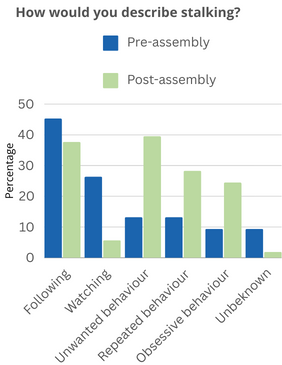
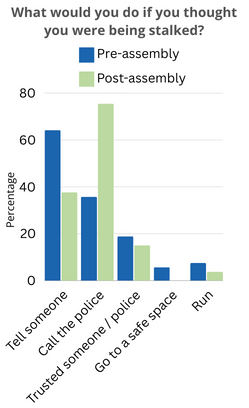
The assembly aims to:
- recognise what stalking is;
- understand that stalking should be taken seriously;
- know where to go for support or information;
- know how to help a friend or family member.
A comprehensive evaluation is being conducted by a team from Goldsmiths, University of London, the University of Kent and the University of Derby, looking at
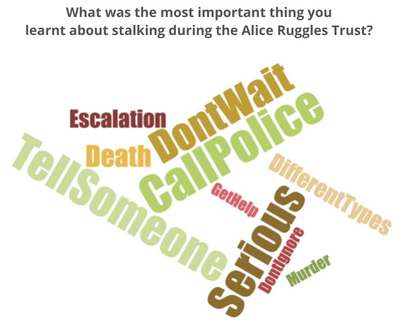
- an outcome evaluation to assess the effectiveness of the school assembly package in producing change
- a process evaluation to assess the capacity of schools to deliver the school assembly package as intended
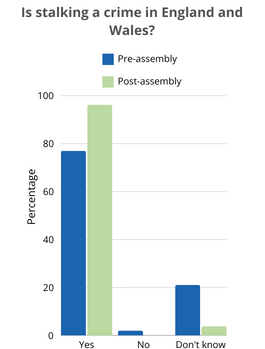
Each student is asked to complete a pre-assembly survey and a post-assembly survey. Each school is asked to reflect on the assembly and each assembly facilitator is asked for their comments.
The data to date shows promise.
Across the 53 complete pupil responses to date, there is a significant shift from stalking being considered ‘watching’ to unwanted, repeated behaviours. Messages about contacting the police were received well. Importantly, students recognise stalking as a serious crime.
